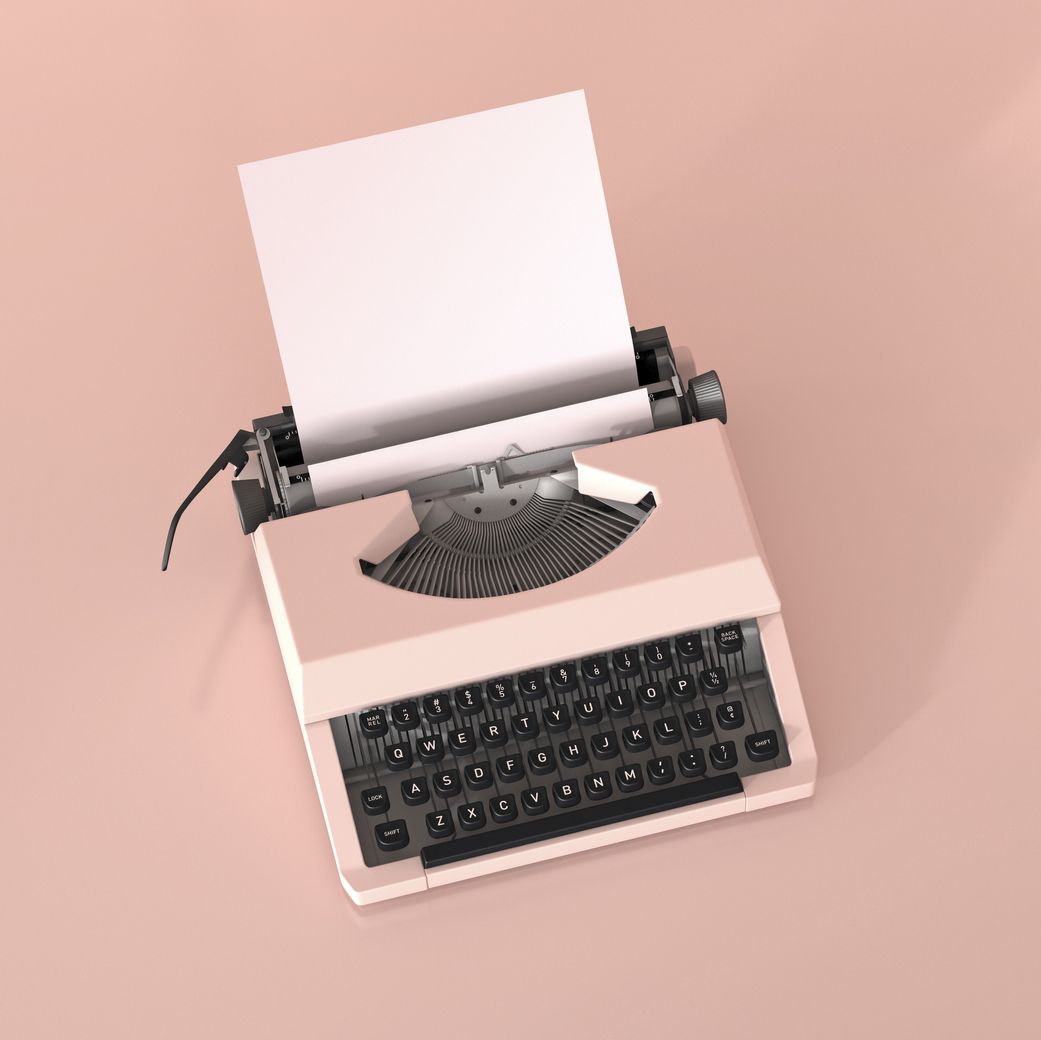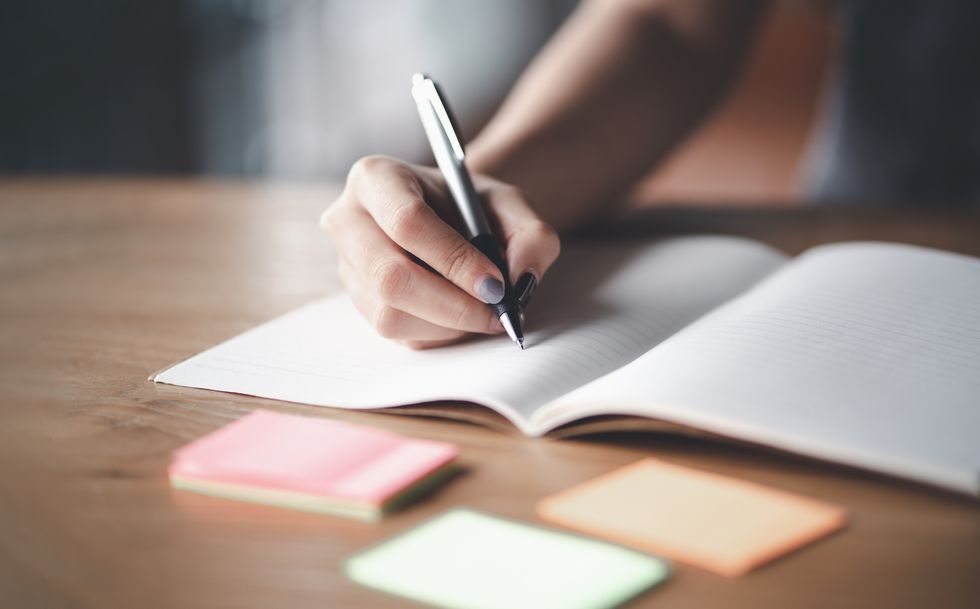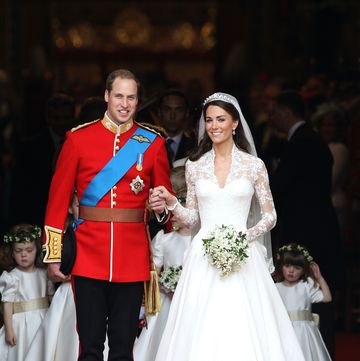As people find new ways to be more productive and creative during lockdown, many budding writers will no doubt be turning their minds to that book they've always wanted to start, but never quite found the time to get underway.
The trouble is, putting pen to paper - or more likely fingertip to keyboard - is often much harder than daydreaming about the perfect opening to your first novel.
That's why we've asked authors and agents to share their thoughts on writing during lockdown.
But as Sharlene Teo - the author of Ponti - says, the worst thing you can do right now is be too harsh on yourself.
'These strange days we live in are anxiety-inducing as is. My first piece of advice is to be kind to yourself in your writing life, and ease into it. Remember that the immaculate prose we savour and admire in our favourite books is the result of many edits and revisions.'
While literary agent at Aitken Alexander Associates, Emma Paterson, is hopeful that the confinement of lockdown could lead to greater creativity.
'I wonder whether these unprecedented times—sitting in the same room every day, staring at the same four walls—may mean that the writerly imagination runs wild, that the writer is forced to think outside of their own circumstances—to invent. That possible future gives me a lot of hope.'
Whether you're not sure where to start, your procrastination has reached news heights during lockdown, or you're not sure what to do with your finished manuscript, ELLE talks to some of publishing's most exciting names to discuss how to write the book in you, and then get it published.
Finding Motivation
When it comes to actually getting the writing done, it turns out that there's no one-size fits all method for meeting your deadlines.
Sharlene Teo's approach to writing Ponti was a little more relaxed: 'I work in a fluid way and don't set daily goals like writing 500 words a day.' She also emphasised the importance of continuing to read other writer's work during your creative process - but not the news or social media - 'the ideas that you have are the consequence of your creative archive, so keep reading and being engaged with texts in a fun and spontaneous way.'
She also advises watching films and music: 'if you get stuck engage with other forms of art that move, provoke, or puzzle you.'
For an example of how to work well under pressure, look no further than Zing: 'I actually wrote 1000 words a day, because of my deadlines.' And although she admits it was the hardest she'd ever worked in her life, she believes that 'hard targets are doable if you put your mind to it.'
The Writing Process
An important thing to consider before you start writing is your own routine. As Zing says treating it like work can help: 'Find a writing rhythm that works for you. Do you have designated writing hours? Treat it almost like you're clocking in for work, whether you're a night owl or a morning person.'
Sharlene suggests that starting small can really help. 'With any fictional project it's about consistently engaging with it. That could be 5 minutes of writing a day, or a small and manageable target of 200 words, and working up from there, if it suits you.'
She has a calendar system where she marks the days with her word count for that day as well as the total word count: 'It's a really good motivator. Don't sweat the small stuff. If you miss some days, leave it. What's important is picking back up on it and keeping on going.'
One of the most important things to overcome is the fear of putting words down: 'The worst thing you write is still better than the very best thing you didn't write. You need to get some words down in order to fix them up (I'm paraphrasing Anne Lamott there).'
Writing Conditions
Zing's writing conditions include a strictly no-phone zone: 'Put your phone in another room. You do not need a phone to write, and you definitely don't need the distraction it offers,' she says.
But that doesn't mean you have to work in silence. Sharlene advocates creating a playlist to put on while writing. 'I like to call writing a first draft "drafting", it takes the pressure out of it, and seems to invite room for experimentation. I have a playlist I keep adding to that is mostly ambient music, post-rock, lo-fi stuff. The soundtrack works as a Pavlovian trigger to focus on the story.'
Both writers share a love for the Pomodoro Tracker to help keep them focused: an app that times you while you do 25 minutes of solid work, encouraging you to stay away from the temptations of social media.
And if you need to have a break from your desk? 'Go on a walk and talk into your phone or take notes,' says Zing. 'This was the advice I got from Milkman author Anna Burns when I interviewed her for the Women's Prize podcast. She walks and thinks all the time!'
Find Your Voice
'Find your voice and don't be swayed by what's zeitgeisty,' Zing advises. 'You may want to write the Great American Novel, but maybe you're a pulpy thriller writer at heart. Don't fight your instincts.'
Remembering that you're interesting will also help creativity flow says Sharlene: 'Your ideas are interesting. You are interesting. Work is only boring when it's derivative or shirking its own particularity. Also, you don't have to write just to get published- you can create stories for fun, for practice, to navigate your own reality in words. Publication and accolades etc are not the only ways of legitimising the creative impulse. Sometimes we write to make sense of the world, for comfort, for candour, for consolation. All reasons for writing are valid.'
Character Building
For those of you that hit a wall when it comes to dreaming up the next Heathcliff or Harry Potter, Sharlene shared a great exercise with ELLE that's designed to get your creative juices flowing.
Start off by picturing the last memorable person that you saw in public - perhaps the elderly lady feeding the birds caught your eye, or maybe it was the stressed out dog walker juggling seven too many puppies. Next, grab your notebook and jot down a description of this person with as much detail as possible. From their age to their accent, if there's something interesting that you noticed about your person, write it down.
Now direct your attention to the Proust Questionaire. A series of questions designed to reveal an individual's true nature, these are the character building conundrums that will help you to develop a fully realised personality. Sharlene asks questions like: 'On what occasion do you lie?', 'If you could change one thing about yourself, what would it be?' and 'If you were a dish, what would it be?', but if you've got time, answer all 35 questions as your character to uncover your next protagonist.
Getting Discovered
The past few years have been a time when women are making their voices heard on several different platforms. Literary agent Emma Paterson came across Sharlene's work after she won the Deborah Rogers Foundation Writers Award, but there are plenty of other ways to catch the attention of industry insiders.
During their free time, both Emma and Emmie can be found scouring social media and online journals for the next strong voice to bring into the spotlight. They also like to attend readings and have conversations with book lovers and critics, so make sure you try to attend events and get involved. 'It's all about community and conversations, that's where creativity lies,' explains Emmy.
Replying to your favourite author's tweets or attending events alone might feel awkward at first, but it's vital for increasing your visibility within the community. You never know who you might end up chatting to in the long run - online or IRL.
Pitching
Sending out pitch emails can be the most nerve wracking part of your mission to get published. Here's how to make sure your emails won't get lost in an inbox.
First and foremost, it's important to make sure you're pitching to the right people. Do thorough research online to find out which agents might be the best fit for you before you send out unconsidered mass emails. Social media stalk agents to find out their personal tastes, and if they seem like they might be interested in your work, then drop them an email.
Another tip from Emmie, is to read the acknowledgements in the books by debut authors you've enjoyed. More often than not, they will give their agents a big shout out in their acknowledgements, so you'll always be likely to find an agent that's interested in new talent there.
When it comes to writing the actual email, most agencies will have submission guidelines up on their website that should give you a good idea of what to include in your pitch, but if in doubt, a standard structure includes a covering email, three chapters of your work and a synopsis of the plot.
And lastly...
'Don't forget to have fun with it, enjoy it, be silly and wild and as ridiculous as you like,' says Sharlene. 'Nobody has to read it until you feel ready.'
Like this article? Sign up to our newsletter to get more articles like this delivered straight to your inbox. SIGN UP



















